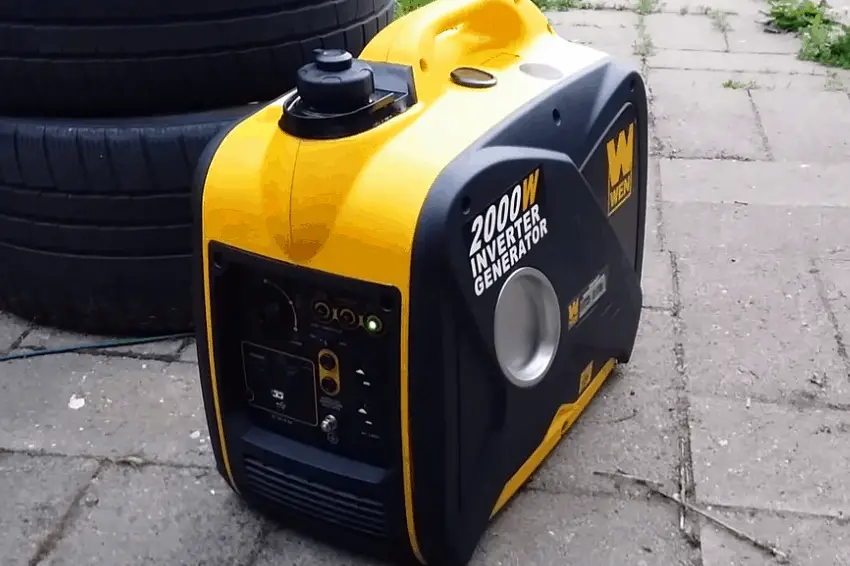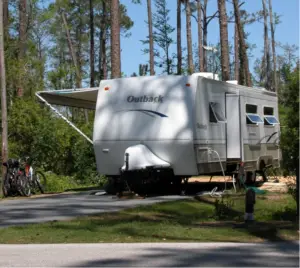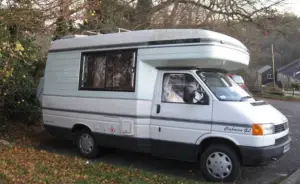Having a generator in rv during dry camping is a must. Not many people would be doing boondocking without a generator. With new models coming in, you get portable generators that are good on fuel and also make noise as less as possible. If you are using that little bulky generator, then you will be worried about not only its noise but also the amount of fuel it will sink in. In this post, lets see rv generator’s average fuel consumption and other related things.
Average Fuel consumption by a RV generator
An answer to this question actually depends on your usage. How many appliances are being run by the generator. Considering you are using almost all the things that you have in your Rv or camper, below are average consumption by different types of generators.
- On an Average a 5000 watt Camper generator that runs on gasoline consumes around 1 gallons of gasoline per hour.
- A 5000 watts RV generator that is fueled by a propane consumes around 1 to 1.5 gallons of propane every hour. On the other hand lesser watt generator like 3500 watts one would need around 0.8 to 1 gallons of propane to run every hour.
- A rv generator that runs on diesel and a having 5000 watts on an average consumes around 0.75 gallons of diesel every hour.
Obviously the consumption will vary depending on how much load you have. One person having everything running at full swing, like 2 air conditioners, refrigerator, coffee maker will utilize more as compared to the one who wasn’t even running an air conditioner and only kept basic things running. On an average the number will remain as i have mentioned above.
Keeping the gallons utilization per hour in mind helps a lot to plan. Rv’s would have limited fuel tanks and thus, its important that you have fair idea of what the overall day’s consumption would be. Let me put those number again in terms of fuel needed per day by each type of generator,
- On an average a 5000 watts gasoline run generator would utilize around 18 gallons of gasoline to run for a day or approximately for 15 hours. Most people dry camping would normally run the generator for these many hours and hence, calculating for those many hours. Even if the running is for 24 hours, ideally you wouldn’t be running all things. Like air conditioner, you may not utilize it all the time of the day.
- A Propane run 5000 watts generator needs around 18-22 gallons of propane to run an entire day. Little bit higher in terms of number of gallons needed. Remember, its not about price per gallon but the overall number of gallons needed. Also, more liquid gallons mean more weight on your RV.
- 5000 watt diesel run rv generator consumes around 12-15 gallons of diesel for running a full day. If you notice this is lower consumption among all of the types. Not much difference though. Also, if the rv runs on diesel then the rv fuel tank itself can supply the generator, but this leads to more consumption (is what most people say).
Propane, Diesel or Gasoline for running rv generator – Things to consider
We already saw consumption of fuel for these three different types of generators. Almost all rv’s will be equipped with these type of generators. Propane, gasoline and diesel are the most preferred fuels for running generators in rv. Each of these have their own pros and cons. It totally depends on various things associated with your RV. There are many things that you can run on rv generator and it all depends on person to person.
A rv that runs on diesel will already have diesel source. And thus, it makes more sense in having a generator that runs on diesel itself. In which case, you may not need to have a separate tank for generator fuel. Most people would be careless about how much fuel the rv generator uses or even the type of fuel generator they should have. But, that can make bigger difference. An air conditioner running whole day could just finish the fuel tank way earlier (where as being careful, you could have avoided using ac whole day). Lets see things that you need to consider before choosing a fuel source and the r generator.
1. Which RV generator fuel burning is best
Diesel operated/ran rv generator are environment friendly , then burn the fuel clean as compared to propane run or gasoline run. Its an important factor to consider specially when you are camping in a campsite or boondocking along with others. A propane run may produce smoke that could be annoying and bad. Even though it may not be much, but good enough to differentiate.
2. Average running hours
A propane run rv generator can be running for around 1000 hours before making significant overhaul. Similar to propane run, the gasoline run rv generators too tend to give similar hours before making that major overhaul. A diesel rv generator can give little over 1100-1200 hours. Remember, not all rv generator would give this much. But, in most cases you can expect this; if proper care and maintenance is taken.
3. Using RV fuel tank for supply
A diesel run generator can directly use the rv’s tank but it may lead to more consumption of diesel. Reason? I am not sure, but this is something that most people see. Otherwise as we have already seen from the gallons needed per hour or per day, the diesel has least consumption in terms of gallons.
4. Availability and portability
Propane as a fuel can be easily obtained and easily available everywhere in the country. Where as with diesel or gasoline this is not the case. Even propane can be carried in small container, that is propane is more portable. With rv, these things really make a lot of difference since you have limited space and weight limitations.
5. Which of these RV generator fuels are more flammable
With fuels you always need to be careful. They are flammable and can result in fires. Among the three types of fuels, gasoline is the most flammable. Diesel is least flammable among all of these where as propane too is highly flammable but less as compared to gasoline. The fuel system needed for propane is more complex and thus failures are more often. Also, it can be very dangerous if the prone supplying line breaks and hence you need to be very careful with them.
6. Noise levels in different rv generators
Generator noise can be annoying for you and other too. When you are at campsite, a high noise level from generator can disturb others and that can go down bad. It is because of this reason that many campsites would simply not allow generators. Even while dry camping, a peaceful surrounding can be disturbed by those sounds. A propane run generator makes the least noise where as a diesel running generator makes most noise.
Choosing a generator for RV – Should you only look at the fuel type?
Choosing an rv generator can be hard for some people as they don’t know what they actually want. They realize about it only after they have spent and bought the machine home. A rv generator is different from what you would bring for a normal home usage. At least think it from this point, while in rv you would be using it as a only source and hence, the considerations change much. Can fuel type be the only factor in deciding the kind of generator you should have in your rv?
Well, deciding on fuel type is critical but there are many other factors and parameters that should be considered as well. Lets see what all factors should be taken into account before buying a generator for your RV.
1. Should be smaller in weight and portable
Generators are generally bulky, but for a camper or rv you cannot afford to put on those extra pounds. A portable, lighter generator is what you need for your camper. Look for something that is less in weight. Many rv’s or motorhomes come with built in generators. But, travel trailers don’t come equipped with built in generator mostly. Having such a built-in generator or not is a complete different topic and needs to factor-in different priorities.
2. Should make less noise
Your generator should be less noisy.Buying a branded one can default help in taking this factor into consideration. Selecting appropriate fuel type can also make sure you don’t end up making surrounding unpleasant for your camping neighbors.
3. Selecting appropriate wattage rating
Having correct watts for your generator is critical. At least, you should have minimum required watts. Also, don’t go for much higher than what you would ever need. There is no definite number of watts that all should have but, a good 5500 watts is what on an average you would need in a rv. It all depends on your usage, number of appliances that you would use.
How many air conditioners you use simultaneously is also a major factor. Just sum up the max watts requirements of each of your appliances that would run in parallel, and you should have a fair watts rating to decide. Also, remember that appliances like air conditioner, refrigerator have starting watts high as compared to running watts and thus, consider the starting watts for your calculation.
4. Other things to consider
Some other factors and things that should be considered include warranty type and years of warranty that you get. Brand of the generator, it is important that you select the brand carefully. There are lost of established ones out there, generators that low on cost could be compromised on quality. So, just be careful with that. It is going to be good amount of dollars that you will spend, so why adjust for compromised functioning with a little saving. You also need to compare safety features like enclosures, jacks, adapters, cord and other accessories.
Conclusion
Before understanding the fuel consumption by a rv generator one need to understand different pros and cons of having a type of rv generator. As a camping person you should have definite requirements and as per that, get a generator that suits your needs in best possible way. While the consumption by a generator for your rv may not be that high, but while boondocking you will not realize the usage and thus planning is key and so is having an efficient rv generator. Good luck.





